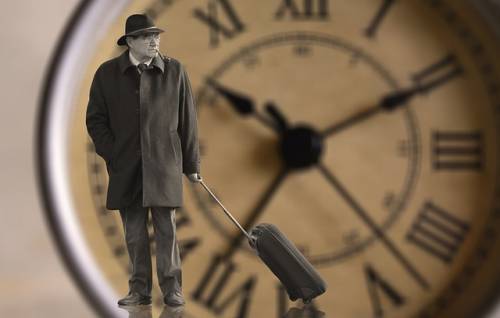Prostate Cancer Myths
Myth 1: Prostate Cancer Is An Old Man's Disease
Fact:
 The risk of prostate cancer increases with age, especially after age 50. More than 80% of prostate cancers are diagnosed in men who are 65 or older.
The risk of prostate cancer increases with age, especially after age 50. More than 80% of prostate cancers are diagnosed in men who are 65 or older.
The following would also increase your risk:
A. Race: Black men have a higher risk of developing prostate cancer than white men. They are also more likely to develop it at an earlier age and to have more aggressive tumours. The reasons for this increased risk are not quite known.
B. Family History: If a man has a first-degree relative (i.e. father, brother, or son) with prostate cancer, his risk of developing prostate cancer is 2 to 3 times higher than average. This risk increases with the number of relatives diagnosed with prostate cancer.
Myth 2: If You Don’t Have Any Symptoms, You Don’t Have Prostate Cancer
Fact:
False. Prostate cancer is one of the most asymptomatic cancers in men. In the early stages they usually cause no symptoms. In the more advanced stages, they tend to cause symptoms which can be mistaken or attributed to something else. For instance, symptoms like the need to urinate frequently, difficulty starting or stopping urination, weak or interrupted flow of urination are symptoms also found in benign prostate hypertrophy, a condition common in elderly men.
Myth 3: A High PSA Score Means You Have Prostate Cancer
Fact:
The PSA test is a blood test used primarily to screen for prostate cancer. An elevated PSA level may indicate the presence of prostate cancer. However, many other conditions, such as an enlarged or inflamed prostate, can also increase PSA levels. Therefore, depending on your PSA level and risk factors for developing prostate cancer, your doctor will decided in consultation with you the next course of action.
Myth 4: You Have To Start Treatment Immediately
Fact:
Not everyone with prostate cancer needs to be treated immediately. If you have an early-stage, slow growing prostate cancer, there are many factors to consider. This would include your age and general health, the likelihood of the cancer causing problems for you, versus the side effects of treatment.
For instance, if you have an early-stage, slow growing tumour, and you are elderly or have other serious health conditions, you might find it helpful to think of prostate cancer as a chronic disease which you are unlikely to die from. You may be more inclined to consider watchful waiting or active surveillance, and less inclined to consider treatments (eg. surgery or radiotherapy) that are likely to cause major side effects.
Myth 5: Prostate Cancer Surgery Will Affect My Sex Life & Cause Urine Leakage
Fact:
Erectile dysfunction following radical prostatectomy for prostate cancer is a known potential complication of the surgery. However, with the advent of nerve-sparing radical prostatectomy techniques, many men can expect to recover erectile function, although this may take some time.
When removing the prostate, surgeons also try to save as much of the area around the bladder and the sphincter muscles around the urethra. Modern techniques which spare the nerves which control bladder function also reduce the complication of urine incontinence post-surgery.
Further Reading
The article above is meant to provide general information and does not replace a doctor's consultation.
Please see your doctor for professional advice.
